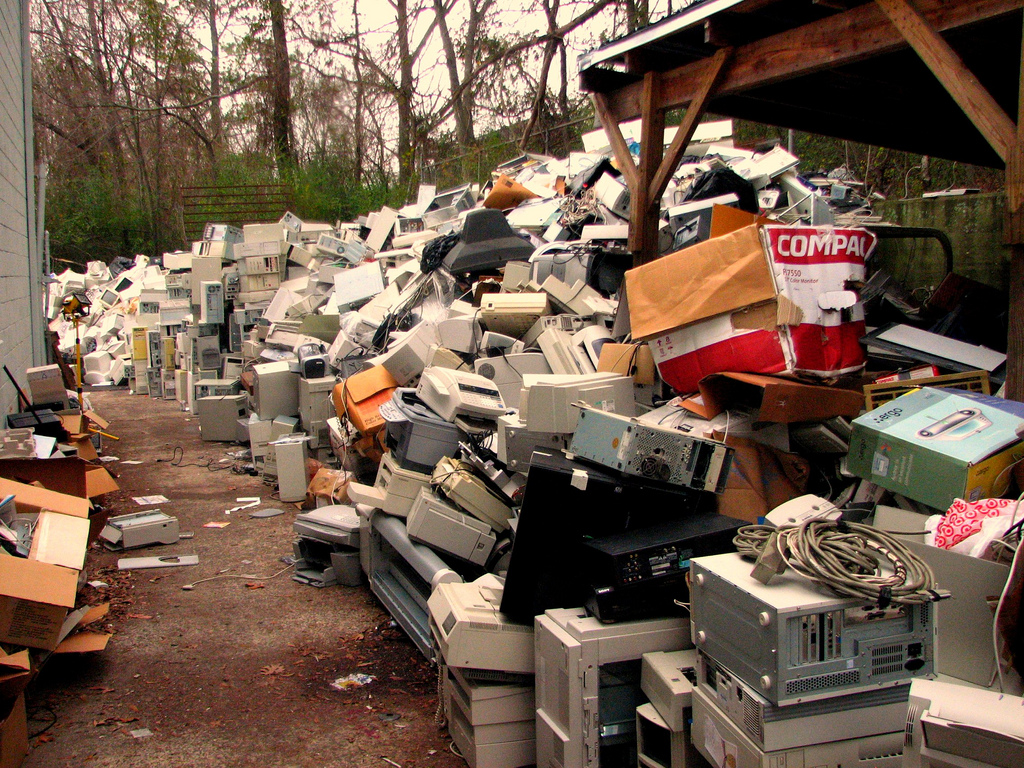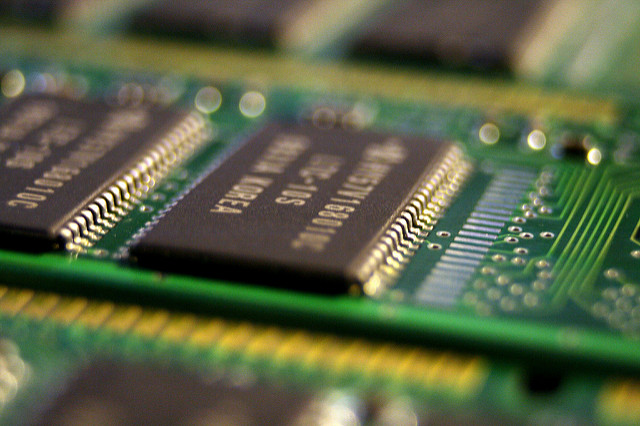A Look into the Forefront of Biodegradable Electronics
In many ways, the computer revolution has changed life for the better. People enjoy unprecedented access to information, easy ways to stay connected with friends all over the globe, and seemingly limitless forms of entertainment, from downloadable e-books to streaming services.
But all this innovation comes at a price: the massive amount of electronic waste that sits in landfills around the world.
Electronic waste is not like other waste.
 Alan Levine - flickr.com
Alan Levine - flickr.com
Landfills are problematic in general. Aside from the obvious concerns about resource inefficiency, landfills are also thought to be a major contributor to global emissions. According to the EPA, "MSW [municipal solid waste] landfills are the second-largest industrial source of methane emissions in the United States, accounting for 20 percent of methane emissions in 2014." But electronic waste—or e-waste—has its own, specific problems. According to The Atlantic, "Air can be polluted when scavengers burn electronic waste to get the copper. If not disposed of properly, toxins from electronic waste can enter the soil and water supplies." There's also the question of data security: what personal information could be on that old phone you threw away? And who might find it once it's lying around at the city dump?
But now, a team of scientists is trying to change that.
What if electronics could biodegrade, instead of sitting in a landfill and polluting the earth? According to the Stanford News service, that's one of the questions Stanford engineer Zhenan Bao set out to answer. In an interview with the campus news outlet, she said, "In my group, we have been trying to mimic the function of human skin to think about how to develop future electronic devices." Specifically, she's referring to the fact that skin is stretchable, self-healing, and biodegradable. "We have achieved the first two, so the biodegradability was something we wanted to tackle," she told the paper.
So what did they come up with?
Bao and her team created a semiconductive polymer that can decompose—the first of its kind.
According to Seeker, an acid as weak as household vinegar would start to break down the device. So rather than throwing away your old phone, you could just dissolve it. In their abstract, published in the Proceedings of the National Academy of Sciences, the scientists write, "Using an ultrathin biodegradable substrate, we successfully fabricated polymer transistors and logic circuits that show high performance and are ultralightweight, but they can be fully disintegrable. Our work significantly advances organic materials to enable environmentally friendly and biointegrated electronic applications."
 Curtis Palmer - flickr.com
Curtis Palmer - flickr.com
Don't expect to see it in stores any time soon.
Speaking to Seeker, Ting Lei, a postdoctoral fellow working on the project said that it would take three to five years to develop the technology to the point where it could be used in an internet-enabled device. But it likely has applications more suited to wearable electronics anyway. Speaking to the Stanford News Service, Bao spoke of wearable medical monitoring devices made out of their stretchy, skin-like material. "We envision these soft patches that are very thin and conformable to the skin that can measure blood pressure, glucose value, sweat content."
Their discovery comes on the heels of some other important advances in earth-friendly tech.
Just two years ago, researchers at the University of Wisconsin were able to build a computer chip mostly out of nanocellulose—essentially wood fibers broken down to a tiny size. And in early 2015, researchers at University of Illinois at Urbana-Champaign and Tufts University were able to develop water soluble integrated circuits.
 Pete - flickr.com
Pete - flickr.com
With e-waste filling our landfills at an alarming rate, the future of how technology will address such issues remains unclear.
But one thing is certain: we need to combat the problem of e-waste and its effect on our environment.
![]()


